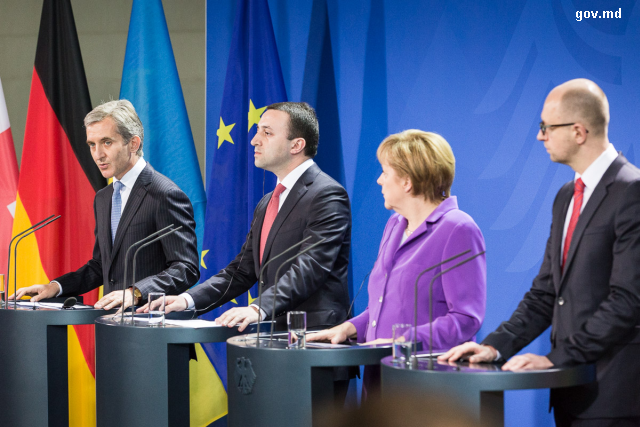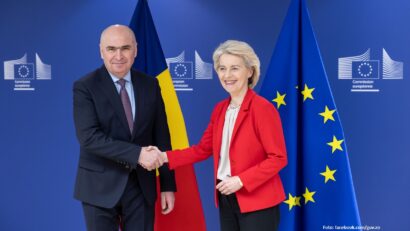Germany and Eastern Europe
Germany reiterated support for accepting Ukraine, Georgia and the Republic of Moldova into the EU

Bogdan Matei, 29.05.2014, 12:52
Tapping into its sizeable population, its central location in Europe and its economic viability, mostly unaffected by the economic crisis, Germany has been in the last few years one of the most influential voices in Europe. However, it has also raised suspicions among its EU partners that it may have a hidden agenda in relation to Putin’s Russia, sometimes going against the grain as to what Brussels wants. Germany’s dynamic economy needs the vast Russian market for its exports, relying on oil and gas deliveries for production.
The former head of government in Berlin, Social Democrat Gerhard Schroeder, was always a good friend of the Kremlin after retiring from politics, and became a luxury mercenary for the Russian energy complex, so much so that British analyst Tom Gallagher went as far as calling him the most irresponsible German chancellor after Adolf Hitler. The North Stream pipeline, which feeds into Germany through the Baltic Sea, circumventing Poland and the Baltic States, has amplified fears that Germany lacks loyalty towards its EU colleagues.
The Russian aggression in Ukraine, the annexation of Crimea, the destabilization of the Russian speaking East, have brought a chill in relations with Moscow, which had been cordial that far. In addition, in spite of Russia’s explicit opposition to the new Western orientation of its former colonies, Germany announced it supported the European integration of the ex-Soviet republics. On Wednesday, Christian Democratic Chancellor Angela Merkel met in Berlin with the prime ministers of the Republic of Moldova, Ukraine and Georgia.
According to a press release of the Moldovan government, Merkel said that the association agreements with the EU to be signed by Moldova and Georgia on June 27 will lay the foundation for a partnership of reforms, which would strengthen democracy, the rule of law and the market economy. In turn, Moldovan Prime Minister Iurie Leanca reaffirmed his government’s determination to opt for European integration, deemed a vital interest for his country. On behalf of the interim government in Kiev, Ukrainian Prime Minister Arsenyi Yatseniuk reaffirmed his country’s wish of becoming a part of the EU, calling on the international community to recognize the new Ukrainian president, Petro Poroshenko, as Europeans have already done.
As a guest and a former East German citizen, born in the former Soviet area of occupation, Merkel said firmly that the EU has no intention of competing against the Russian Federation in the east of Europe. The solution, according to the chancellor, is for the ex-Soviet people to be given the freedom to make their own choices, instead of being forced to pick between the East and the West.






























